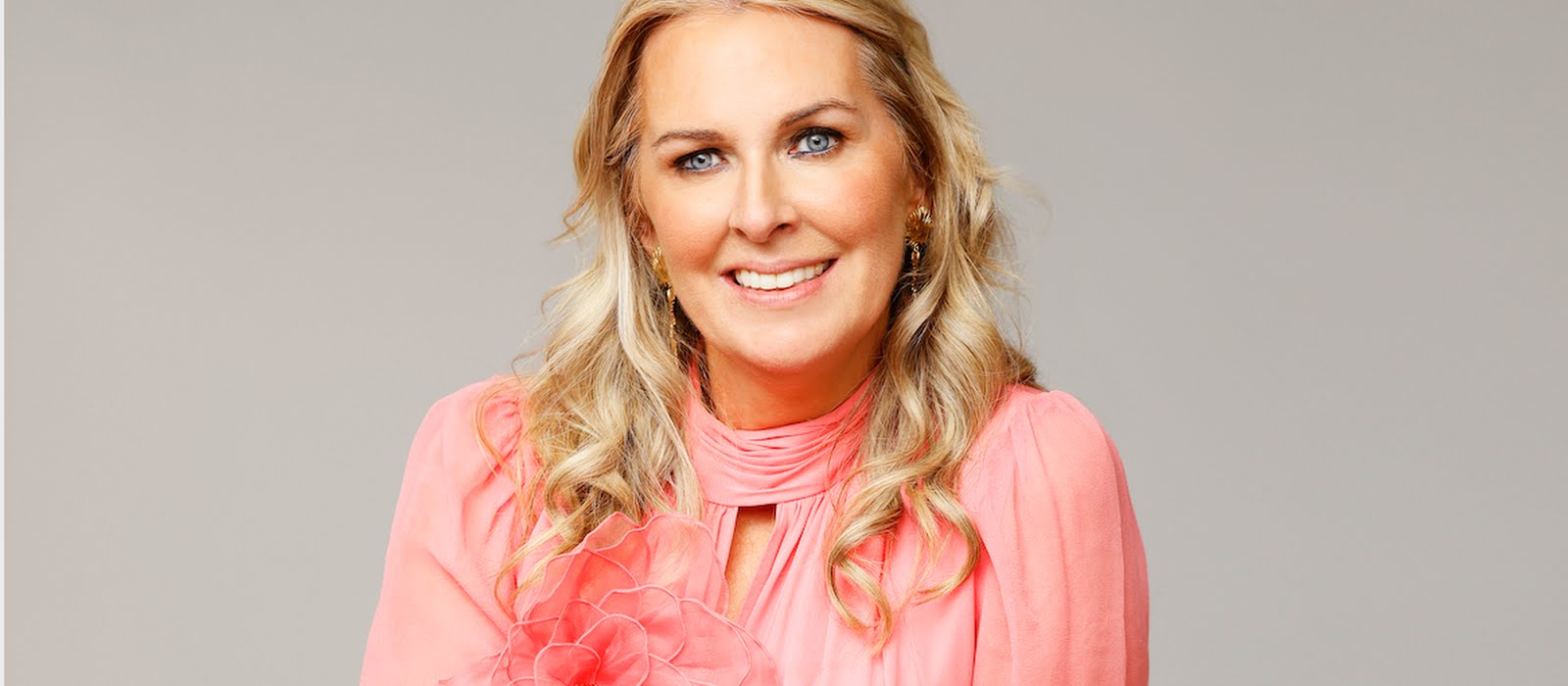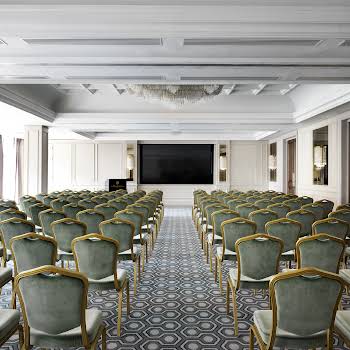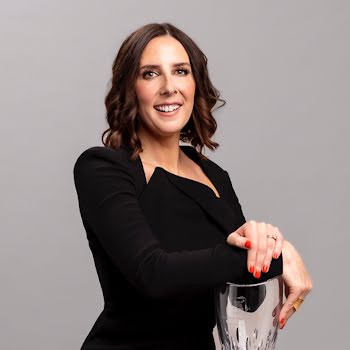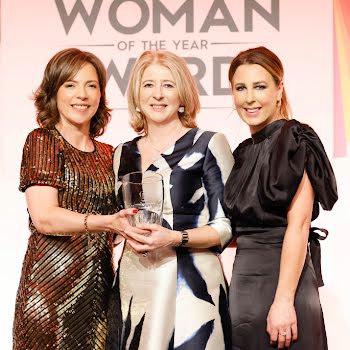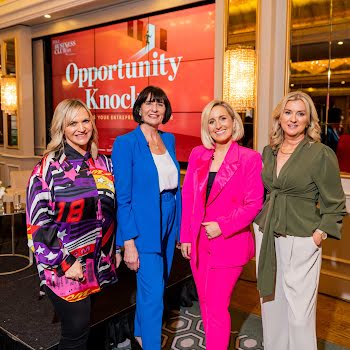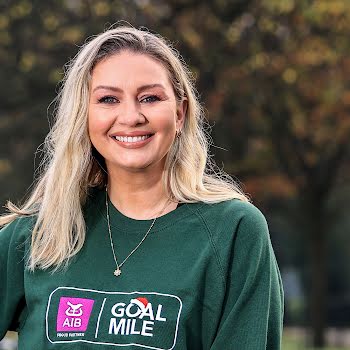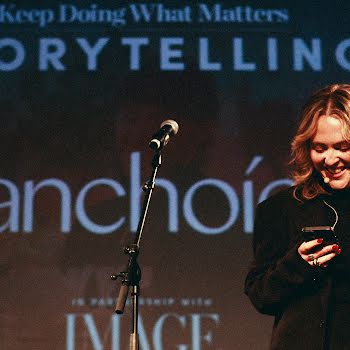
“I’d like to be known as a good boss, parent, wife and friend”: Emma Maye on being an unexpected CEO


Emma Maye learned about construction during hard times. Now on the other side she leads a thriving homebuilder and a building supplies business. In this interview, written in collaboration with The Currency, the overall winner of the IMAGE PwC Businesswoman of the Year Awards talks to Tom Lyons.
The building provider in Clondalkin owned by CORE is crammed with everything possibly needed by the DIY enthusiast or the serious builder. It is one of six branches in Dublin led by Emma Maye.
This is just one business spearheaded by Maye. The businesswoman is also the chief executive of homebuilder Ardale, which she co-founded in 2012 with her husband and business partner Alan Hegarty. Some 170 people are employed across the two companies.
Maye guides me around the tools and building equipment at the Clondalkin store, leading me towards the boardroom of Ardale.
It is a lot less glamorous than when we met last at a packed black-tie awards ceremony in the Clayton Hotel in May for the Image PwC Businesswoman of the Year Awards. That evening, Maye was named at the end of the night as the overall businesswoman of the year.
“I wouldn’t have in my wildest dreams have considered I could win,” she said. “But it did make me reflect. It has been a hell of a journey.”
Emma Maye wasn’t always sure she wanted to go into construction. Her father, Liam Maye, had been a major figure in the industry. Has a founding director of housebuilder Castlethorn and a partner in the development of some of Ireland’s biggest mixed-use and commercial projects. Think the Dundrum Shopping Centre or the new town of Adamstown in west Dublin.
After studying business she went into technology, rising to become EMEA and global manager with Salesforce. She was enjoying her career, working on big accounts with Bank of America, Delta and Dell. However, her father died unexpectedly in May 2008 at only 64.
This changed Emma Maye’s world. And the world she was now living in was changing too.
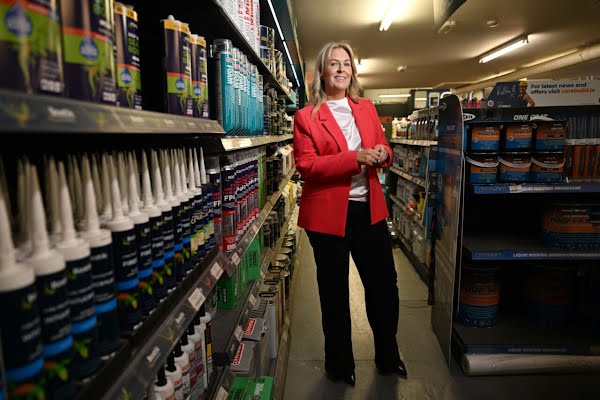 Bryan Meade
Bryan MeadeLiam Maye’s death passing came as Irish property valuations collapsed and the country headed towards a deep recession.
Her mother Anne was struggling to deal with a sprawling business that spanned Ireland, Britain, Europe and the United States. It was all held within the Estate of Liam Maye, which, grouped together, was known as ELM Holdings. It was a large complex group of assets and debts. Often, it multiple partners who, as the crisis unfolded, were all facing their own financial problems.
Maye was just six months into a relationship with Alan Hegarty (now her husband) when her father died. “It wasn’t that long but you know when you know,” Maye said.
It was my mother’s and father’s legacy. It was an incredible decision, but I decided to give it a go.
Hegarty was a chartered accountant who trained in EY before working with Bennett Construction. Maye and Hegarty started informally helping her mother unravel the estate. Meanwhile, they continued to hold onto their full-time jobs.
At 4 pm on May 29, 2009, Maye finished her last day in Salesforce to go on maternity leave. “At 5 pm that day I’d a big bunch of flowers in my hand and my waters broke,” she recalled. Her first son William arrived safely but by now it was clear that the financial crash was here to stay. She sat down with her then husband Alan to figure out what to do next.
“It was a big decision. We had a regular income coming in but I saw what I had to do for my family. It was my mother’s and father’s legacy. It was an incredible decision, but I decided to give it a go. I never looked back.”
Growing up, Maye said had picked up things about the construction industry from being around her father. “I knew what he was doing but I just didn’t know the intricacies,” Maye said.
She started working with Hegarty and figuring it out now in earnest. He took a sabbatical of six to eight months from Bennet to work on Liam Maye’s estate. “We got our teeth stuck into the estate,” Maye said.
It was a major task.
Welcome to Nama-land
Between all the different partnerships and co-ownerships, there was €1 billion in debts secured on assets that were once considered prime. But now in the crash, nothing was selling. The banks were circling and thousands of borrowers with property debts were being sucked into a new unforgiving entity set up the state to deal with the property crash: the National Asset Management Agency (Nama).
We had to go see banks here and in different countries in Europe. We had to go to the US. I love problems. I love management. I love leadership. But it was tough.
As Maye is telling me her story so far, her husband Alan Hegarty joins us in Alderton’s boardroom. “We were family, so we had to do it,” Hegarty said. “You do what you have got to do for your family.”
They had no choice as a family but to try and unravel each debt and asset, one deal at a time.
“Emma was pregnant but you do what you have to do for your family. Emma stepped up, and I stepped up with her,” Hegarty said.
The ELM portfolio was vast with interests in Spain, Britain, the United States, London, Kildare, Dundrum, Dublin and elsewhere. Maye took out a pen and paper and started to list them and work out a plan to deal with each asset after the other.
“It was long hours as there was a lot of different assets. We had to go see banks here and in different countries in Europe. We had to go to the United States,” she said. “I love problems. I love management. I love leadership. But it was tough,” Maye said.
I probably work my best under pressure. If 15 or 20 things are going on that’s when I’m at my best.
Maye was, for example, helping to manage an investment in the Oakley Court Hotel in Windsor. The striking four-star 118-bedroom hotel is the scene of hundreds of movies including The Rocky Horror Picture Show and the St Trinian’s series of films. Despite the crash, the hotel remained successful and Maye was tasked with running it while trying to juggle everything else.
“I was getting the red eye in the morning and coming back that night or staying over until the following morning,” Maye said. “Between everything you just had to give a piece of yourself to it.”
I had two miscarriages. I had three Nama babies . . . It was really difficult but you just have to keep going.
Nama was now up and running, and it was putting all its borrowers under pressure to come up with a plan to pay it as much as they could. On top of that, there were other banks too to be dealt with.
“Every single meeting that had to be held. I was there. It was really, really difficult,” Maye said. “It was as it should be. Nama had to answer to the government and the taxpayer. What they wanted was the best for the taxpayer but it was gruelling.
“It was intense. It was very hard when I was either pregnant or I had hyperemesis. You have to press pause on your personal life. I had two miscarriages. I had three Nama babies. I probably had the baby blues. I had hormones running left, right and centre. It was really difficult but you just have to keep going. When I look back now, I realise what I did but when you’re in it you just have to keep going.”
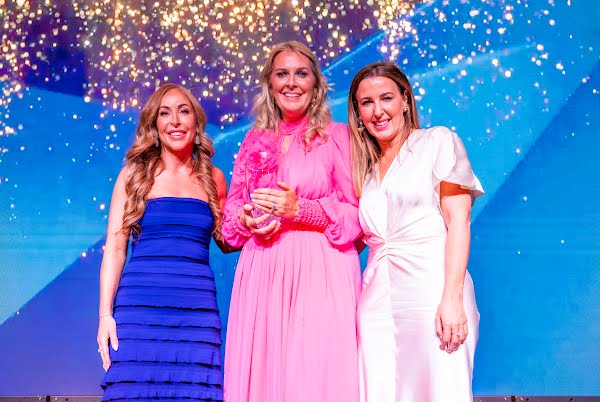
Nama, as it did with all borrowers, put Emma Maye under pressure to come up with a business plan. “It had to be completed regardless of what was going on outside in my life. It just had to be done,” she said, adding that her children and relationship all suffered because of the amount of time required to work through the estate.
She found that despite the long hours, she thrived. “You were always under pressure and in the firing line. But I probably work my best under pressure. If 15 or 20 things are going on that’s when I’m at my best.” Finding time for her family was hard. She recalls at one time booking a week-long holiday.
“I’d gone out on a Thursday and Alan was going out on a Friday. By the time Alan arrived I was booking flights home on Saturday for us both as an issue had arisen with one of the banks. I think it was the quickest holiday Alan ever had, about 14 hours.”
Emma Maye watched as assets built up by her father were sold off at a discount to large international funds who often made a killing later on.
But she accepts too that those tough decisions had to be made.
“Things in Ireland weren’t going well at the time,” she said. “There wasn’t much money around. You just had to survive and keep going.
“I was very proud of my dad’s legacy and what he’d done. I’m still proud of that. The government had to make choices, and I’m only one voice.”
Opportunity from a crisis
By 2013, everything that could be had been sold. ELM Holdings had been in Nama, but Maye and Alan Hegarty had not been so they were free to start new ventures. They bought their first site in Delgany, Co Wicklow and started to buy others at a time when prices were low. Ardale was born.
It is definitely getting harder and harder. There is total uncertainty because of the risk of litigation.
Further sites followed in Wicklow and county Dublin. Hegarty says they could see that the demand for homes was going to grow. “You could see things were starting to happen again,” he said. “With our age profile, we felt the time was right to build new homes. We weren’t in Nama ourselves, so we were keen to get going ourselves as we could see the opportunities.”
Ardale got planning for a site which it sold on, and this helped give it the capital to build more homes. To date, it has built more than 400 homes and it has a pipeline of hundreds more either under construction or in planning. It has also built retail units for Aldi and Lidl near its housing developments as well as coffee shops for Costa Coffee.
Planning challenges
In Dun Laoghaire, it got planning for 151 apartments but sold this site to Bartra who reconfigured the site for even greater density as a co-living location. In 2015 it bought Weslin Construction out of examinership saving 15 jobs and bringing in a pipeline of work with blue-chip clients.
Ardale specialises in building family homes in the private sector but it has also built 196 homes in Arklow which it sold last summer to a housing agency and Wicklow County Council.
Like all developers in Ireland Maye finds the uncertainty around planning very difficult.
Growing up she recalls her father trying to build homes in Carysfort in Blackrock, Co Dublin. “I was just a young girl. I remember seeing it as all greenfields. He was refused planning but he later got it and built homes there.”
Obtaining planning has always been a challenge, but she feels it is even harder today. “Now it is very difficult and litigious. Timelines on things are often longer,” she said. “It is definitely getting harder and harder. There is total uncertainty because of the risk of litigation.” Ardale has a pipeline of homes to build, but Maye said she was concerned not just about planning but also the length of time it took to get connected to Irish Water and other utilities.
Ardale hopes to complete more than one hundred homes a year but it is dependent on finding the right sites with zoning and access to services and is looking at Britain for growth. “We are interested in the UK on that front,” Hegarty said. “Places like the Home Counties, West London and the area around Heathrow airport.”
In 2015 Emma Maye opened her first building supplies business in Clondalkin, followed by Coolock the following year and Blackrock in 2017. More sites followed and it then took over a business in Ringsend. About two years ago it rebranded its entire building supplies business as CORE. Maye is undeterred going up against larger building materials suppliers and she wants to grow the business.
“We want to build the brand. We are looking at buying other building providers. I like taking over existing businesses, and bringing them into our business,” she said.
Ardale has also invested in other businesses. In December 2018 it rescued Sligo-based door lock and handle-maker Basta from liquidation. It built this business up to sales of €3 million before selling it to construction materials group Laydex Building Solutions.
In the last 15 years since my father died I have faced sexism and ageism but you just get on with it . . . I have definitely connected with more female CEOs over time.
It was also involved in Asador, a restaurant in Dublin 2 for a number of years. It helped the business get planning for an outdoor extension, before they later sold out of it. Maye and Hegarty are currently working on a new venture, which they hope to launch in the final quarter of this year.
For the moment, Maye won’t reveal much about it. “We are looking at setting up a new unrelated business. We’re in the advanced stages of that at that moment,” Maye said. “It is a new sector but we are really excited about it.”
Emma Maye is a rare female chief executive in an industry that is still male dominated. She says she hasn’t really seen discrimination. “I am the boss so it is different,” she said. Her business had one per cent females when it started but now that is 17 per cent. “We have reduced the ratio but it is still a male-orientated business,” she said.
“In the last 15 years since my father died I have faced sexism and ageism but you just get on with it. I always want to deal with like-minded people and I have definitely connected with more female CEOs over time.”
Loss of a friend
Winning the overall IMAGE PwC Businesswoman of the Year Award award was a bittersweet experience for Emma Maye. She’d attended the awards before as a guest of her close friend Jenny Taaffe, the hard-working and passionate founder and chief executive of digital marketing group iZest.
In 2018 Taaffe had won her award for Digital and Technology Businesswoman of the Year, but this time Taaffe was not with Maye. She died in 2019.
Maye remembers the moment when she heard that her friend was losing her battle with pancreatic cancer. She was in the middle of finally settling a long-running big court case dating back to the final crash.
“Everyone was happy,” Maye recalled. She turned on her phone as she waited for lawyers to draft up the final terms of the settlement. A text arrived from Taaffe. “She goes, ‘Emma, I’ve been back in hospital. I didn’t want to tell you because I knew what this weekend was, but I came home last night.”
Ten days later, her friend died. “That was really hard, that was a really hard time.” By settling the case Maye had finished a journey that began when she decided to leave her tech job to go back into her family business.
“It was over, but it brought with it sadness. The release of all that 10 years of trying to keep everything together. Losing a friend. I remember at my parent’s wedding anniversary in 2019 feeling a lid open in me after keeping everything on hold: the grief, my father.”
No one is going to talk about how amazing I was working 18 hours a day.
Maye’s health had suffered and she had an emergency hysterectomy in 2018 after being prompted to go for a routine smear test. She decided to take the test after Vicki Phelan won her court case against the state. She said hard times had taught her to switch off after work and enjoy time with her family.
“One day it is going to be my funeral. No one is going to talk about how amazing I was working 18 hours a day. I would prefer to be known to be a good boss, parent, wife and friend.”
This is the first in a series of articles written in collaboration with The Currency. Chief Executive of The Currency, Tom Lyons, was a judge at the annual IMAGE PwC Businesswoman of the Year Awards.
Become an annual member of The Currency today and get unrivalled daily coverage of Irish business, finance and economics. Get access to more than 6,000 unique interviews, investigations, columns, and features, as well as 380 original podcasts – plus all new content for the next 12 months.
Online-only and subscription-only, we examine the sectors, people, and companies that matter. Members also get access to regular events with business leaders, policymakers and opinion shapers; often in collaboration with blue chip partners.
Join The Currency today with the code IMAGE10 and for 10% off annual membership.

The IMAGE Business Club is building a supportive and empowering community of women in business in Ireland by delivering the Network, the Expertise and the Knowledge they need to thrive. We are delighted to partner with the Currency in this series of interviews and in offering the IMAGE community an exclusive 10% discount on an annual subscription.











